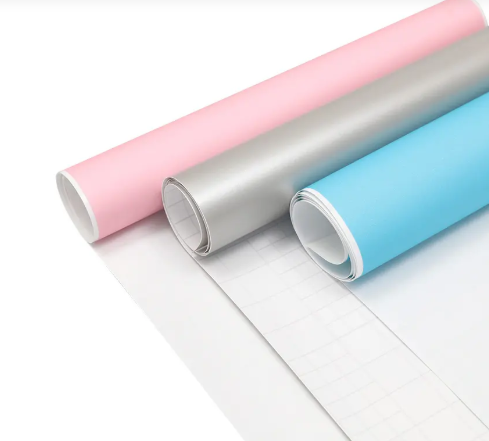Understanding Window Film and Privacy Needs
How Window Film Balances Visibility and Natural Light
Window films represent an important advancement that helps strike the right balance between letting in natural light and maintaining privacy. These films work by filtering light in a way that creates gentle indoor lighting while making it hard for people outside to see in clearly. Different types of materials like reflective coatings, tint layers, or frosted surfaces help accomplish this effect throughout different parts of the day. Most quality window films actually keep around 80% of sunlight coming through, which makes indoor spaces much more comfortable without compromising anyone's sense of privacy. People living in apartments or working in office buildings often worry about being watched from outside, but good window film solutions let them have well lit rooms without giving away what happens inside.
Common Scenarios Requiring Privacy-Focused Window Solutions
People need good privacy solutions for windows all the time, especially around homes and offices. Bathrooms and bedrooms come to mind first since folks want to keep their business private but still let some daylight in. Workplaces have different needs too. Meeting rooms and cubicles definitely benefit from proper window coverings so sensitive discussions stay confidential and workers can focus better. Cities pose special problems because there's always someone walking by outside. Anyone living or working in a busy downtown area knows how awkward it feels when strangers can see right into their space. That's where window films really shine. They block unwanted views without making rooms feel gloomy. Most people find they strike just the right balance between privacy and letting nature light do its job. Plus, these films come in various styles that actually look pretty nice on modern buildings.
Types of Privacy Window Films That Preserve Light
Frosted and Etched Films for Diffused Light
People often go for frosted window films when they want some privacy but still need plenty of sunlight coming through. The way these films work is pretty simple actually they diffuse light so everything looks blurry from outside, which means nobody can see inside clearly, yet the room stays bright and welcoming. Bathrooms and office partitions are common places where folks install them because they look nice too with that smooth matte surface. Etched glass films take things a step further though. Instead of just being plain, they come with all sorts of fancy patterns that let businesses showcase their brand identity while keeping the interior visible to passersby in retail settings. Whether someone picks frosted or etched options, either way they get both functionality and good looks at the same time.
Tinted Films with Light-Transmitting Properties
Tinted window films do a pretty good job of keeping things private without making rooms feel dark. They let sunlight come through but stop people from seeing inside, so offices and homes stay well lit without sacrificing privacy. Most companies sell them in different shades too – some folks want just a touch of tint to keep glare down, others go for darker options that block almost all visibility. We've seen everything from subtle bronze tones in corporate buildings to deep gray films on luxury apartments. These products work wonders in both home environments and business spaces, helping create areas that feel secure yet still full of life and energy.
Decorative Patterns for Style and Function
Window films that add decoration bring together looks and practicality, coming in all sorts of patterns that hide what's outside while making interiors look better. Some have basic textures, others feature intricate designs, and most can be tailored to match exactly what a room needs visually. Many businesses put their logos or special symbols on these films too, so they get privacy without sacrificing good design. The ability to personalize really matters here because companies want their spaces to reflect their brand identity while keeping things private. These films aren't just about hiding windows anymore they actually transform how spaces feel and function at the same time.
Benefits Beyond Privacy: UV Protection and Glare Reduction
Safeguarding Interiors While Maintaining Brightness
Good quality window films do much more than just keep prying eyes out. They actually stop around 99% of those dangerous UV rays from getting through glass. That means furniture, carpets, even paintings won't fade so quickly over time. And it's not just stuff in the house either. People who spend time near windows get protected too since their skin isn't exposed to as much harmful radiation. Another big plus is how these films help cut down on energy bills. The way they work with heat makes rooms stay cooler in summer and warmer during winter months. So air conditioning doesn't have to run as hard, which saves money at the same time as keeping spaces comfortable. Plus, unlike some other solutions, most modern window films let plenty of natural daylight come through without making everything look gloomy inside.
Improving Visual Comfort in Sunny Spaces
Cutting down glare is one of those real perks people notice when they install window films. Think about it – that blinding sunlight streaming into living rooms or offices all day long? It really does give folks headaches and makes everything look washed out. Good quality window films tackle this problem head on by softening those harsh rays without making spaces feel dark or closed in. Some actual research backs this up too; when glare gets reduced, people report feeling better overall and actually get more done throughout their day at work or even just relaxing at home. What's great about these films is how they let in enough natural light to keep things bright but block those annoying reflections off computer screens or countertops. This creates spaces where people spend time without constantly squinting or adjusting blinds every few minutes.
Installation Considerations for Optimal Results
Professional Application vs. DIY Approaches
When it comes time to install window tinting films, homeowners face an important choice between hiring pros or tackling the job themselves. Professional installers typically deliver much better results since they know exactly how to apply the film properly for maximum performance over years rather than just months. These experts bring specialized equipment and experience that helps prevent those frustrating problems everyone talks about like air pockets getting trapped under the film or edges not lining up straight. On the flip side, going the DIY route does save money upfront but often leads to premature failure of the product. We've seen countless cases where improperly installed films start peeling within a year or two, which means spending even more cash later on repairs or complete replacement. For anyone who wants their investment to last through multiple seasons without headaches down the road, paying for professional service usually makes sense despite the initial higher price tag.
Measuring Window Dimensions for Full Coverage
Getting accurate measurements matters a lot when installing window film properly. If the dimensions aren't right, we end up with coverage issues that mess with what the film is supposed to do for things like blocking UV rays and maintaining privacy around the house. When measuring windows, don't forget about those tricky spots like frames, sills, and sometimes odd shaped glass pieces that just won't fit standard sizes. We've seen cases where people missed by just an inch here or there, and suddenly there were these annoying gaps letting light through exactly where they didn't want it. For best results, take your time with measurements or talk to someone who knows their stuff about window films. An extra set of eyes often catches problems before they become headaches later on.
Maintaining Privacy Without Darkening Rooms
Adjusting Film Opacity Levels
Adjustable opacity window films provide a great way to keep private without losing all that nice natural light coming through. Homeowners can basically set their own privacy levels whenever they want throughout the day based on what suits them best. New tech has made these smart films possible, some of which switch between clear and opaque just with a touch or button press, giving folks real control over their space. Take mornings for example when someone might want things pretty dark for sleeping in, but then later in the evening they could make the windows clear again so they can actually see their backyard from inside. These kinds of smart films really transform how people experience their homes because they adapt so well to changing privacy requirements yet still let plenty of daylight stream in during those bright hours.
Strategic Placement for Light Optimization
Putting window films in the right spots makes all the difference when it comes to getting good natural light without sacrificing privacy. When we angle these films just right, they actually spread light better throughout rooms, which tricks the eye into thinking the space is bigger than it really is. What's interesting too is that people often apply film only to parts of their windows. Some folks leave the top half clear so sunlight streams in but cover the bottom part where anyone passing by might peek inside. This works great for family rooms or home offices where we want brightness during the day but don't want neighbors staring in. With a little thought about how light moves through different parts of the house, most homeowners find window films help strike that sweet spot between having enough daylight and keeping things private.
FAQ
What types of offer privacy without darkening rooms?
Frosted, etched, and tinted films are popular choices that provide privacy while allowing natural light to enter the space. Decorative films can also be tailored for aesthetic needs without compromising lighting.
Can block UV rays?
Yes, quality window films can block up to 99% of harmful UV rays, protecting interiors from fading and decreasing the likelihood of skin damage.
Is professional installation of window films necessary?
While DIY methods are available, professional installation is recommended for optimal results and long-term performance, ensuring a flawless application without common issues like bubbles.

